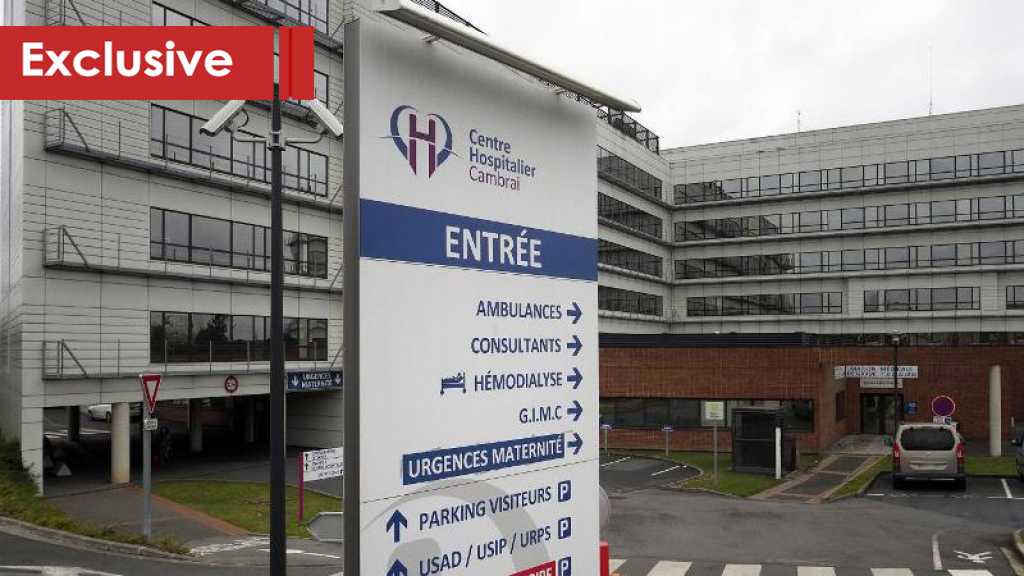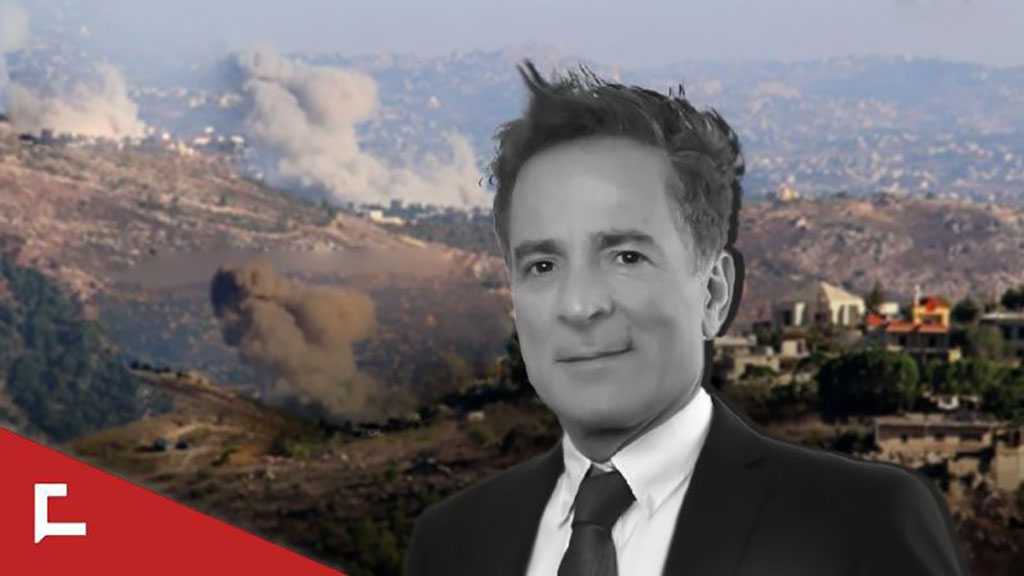A Doctor of Lebanese Origin Treating Coronavirus Patients in France: I’m Very Proud of My Mother Country

By Malak Bourji
Lebanon’s star is on the rise again. This time, it’s emerging as a state striving to contain the spread of the coronavirus better than some developed countries.
Lebanese doctors all over the world have not abandoned their humanitarian obligations at a time of adversity, but pursued those responsibilities with courage and dedication.
Zakariya Joumaa is one of those doctors. He is a French national of Lebanese origin. He spent much of his childhood in Lebanon before traveling to France in 2002 to study medicine. The man has been working as a nephrologist for more than six years, and currently works as a doctor at Cambrai Hospital in northern France.
Joumaa follows up on kidney patients as well as patients who had undergone dialysis and kidney transplants. However, he was recently assigned to COVID-19 patients, knowing that he had contracted the virus about three weeks ago.
As part of our ongoing efforts to tell the stories of Lebanese expats that reveal both their suffering and triumphs, Al-Ahed interviewed Dr. Joumaa about the disease and its spread in France.
Data compiled up until April 8, 2020, places France among the worst-hit countries by SARS CoV2 – whether at the European level where it sits in third place after Spain and Italy, or globally where it ranks fourth after the US. The US currently has nearly 400,000 confirmed cases.
Meanwhile, France had nearly 110,000 cases on April 8 with 11,000 new ones registered within 24 hours. Of these, 30,000 are in hospital, and more than 7,000 need to be admitted to the ICU. According to Dr. Joumaa, the overall figures reflect a very active pandemic of COVID-19 in France.
Joumaa points to factors that increase the risks posed by the disease in some people: old age – people over 70, obesity, chronic respiratory failure or any respiratory diseases, chronic kidney failure in the final stage, advanced heart failure, stage 2 cirrhosis, high blood pressure, coronary artery disease, stroke, heart surgery, insulin-dependent diabetes patients or diabetes mellitus, immunodeficiency regardless of its cause whether drugs, transplantation, AIDS, advanced cancer, or third trimester of pregnancy in general.
Joumaa notes that those who are more optimistic about predicting the future of the disease believe that the virus will dwindle on its own by the end of spring or by the end of 2020, with collective immunity gained after 50% to 70% of the population is infected. However, most pessimists fear that this pandemic will turn into a cyclic pandemic such as the flu. And they based this on data which argues that acquired immunity to SARS CoV2 is transient and that there are already many mutant strains of this virus.
Joumaa adds that the scientific community will eventually find a vaccine against COVID-19. But this won’t happen before the end of the year or early next year, which is the time required to test a potential vaccine and prove its effectiveness. This vaccine will be very useful if this pandemic becomes cyclic.
When asked about his experience contracting the virus and recovering, he thanked God for surviving the ordeal.
"Luck was on my side as I experienced mild symptoms without the need to go to the hospital and for a short period that allowed me to resume work quickly. I had the first symptoms in mid-March, when I started having a runny nose, then fatigue, body aches, chills, and mild fever. These symptoms subsided after taking paracetamol and lasted for only 72 hours. They were followed by a loss of smell and a partial loss of taste, which improved day after day."
According to Joumaa, the pandemic exposed the great fragility of the health system in some European countries. In fact, there is no comprehensive European health system. Each European country runs its own health system with different manners. In general, certain factors explain the EU's vulnerability to this disease, such as the demographic characteristics of the increasingly elderly population.
As for the disparity in infections and deaths between European countries, Joumaa says it can be explained by several factors, such as the country’s geography, the migration flow (for example, Portugal somewhat avoided the pandemic), the population density (Lombardy has a population of 422 people per square kilometer), the anticipation period before the outbreak of the disease, the strategy of managing the pandemic (such as the comprehensive examination of suspected cases, contact cases, and quarantine in Germany as well as the speed with which measures were imposed and the population was given support).
There are also other factors to consider about a country's health system: the lack of universal medical coverage, insufficient structures [the number of hospital beds, especially in the ICU], the lack of strategic stocks for specific equipment [protective gear such as gloves and masks, screening kits, or even ventilators]. In addition, there is little coordination and mutual assistance between member states.
Regarding the plan implemented by the Lebanese state to fight the coronavirus, Joumaa says that the country is doing a very good job when compared to other states despite the economic and political crisis that existed long before the disease appeared, and despite the fragility of our health system. This would not have been possible without the extensive work and measures taken at an early stage in managing this disease and the Lebanese people’s respect for health instructions. He welcomes recent efforts by the government to bring home Lebanese expats and those who got stranded abroad. He also commended all exemplary measures to protect them and their loved ones in Lebanon.
“This makes me very proud of my mother country,” the doctor said.
Asked whether he would heed any future call from the Lebanese state to assist in battling the pandemic, Joumaa says he is ready to help.
"I hope from the bottom of my heart that I will not reach this point. But if it was necessary, and I could be useful, I will be at the disposal of my mother country, without failing to fulfill my obligations as a practicing physician in a hospital in France."




